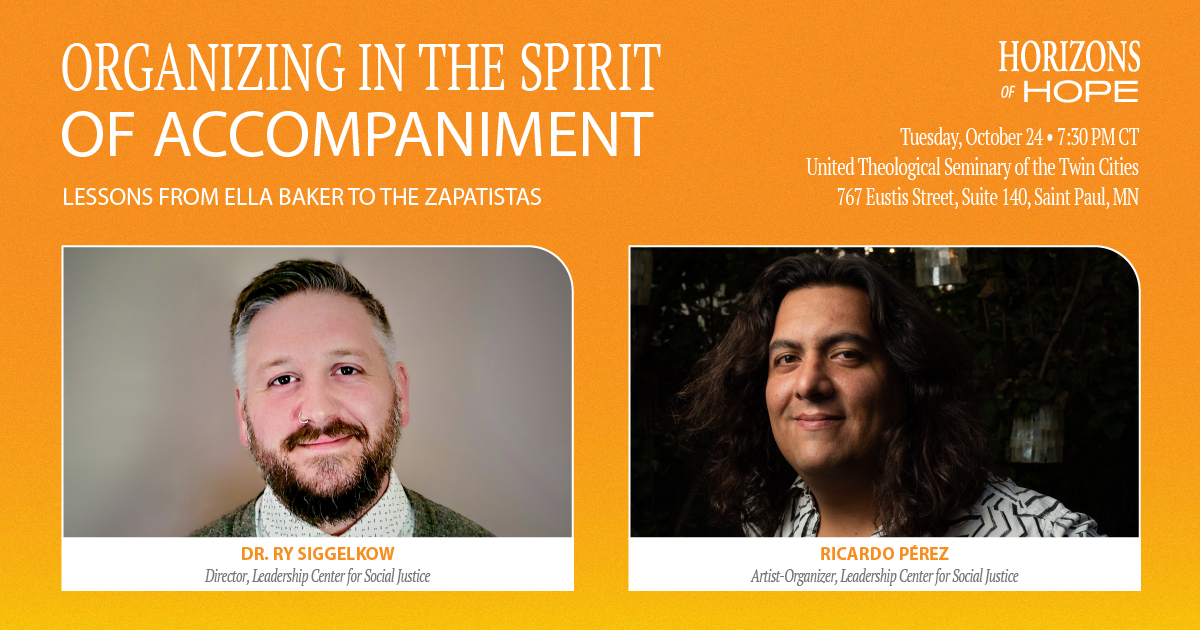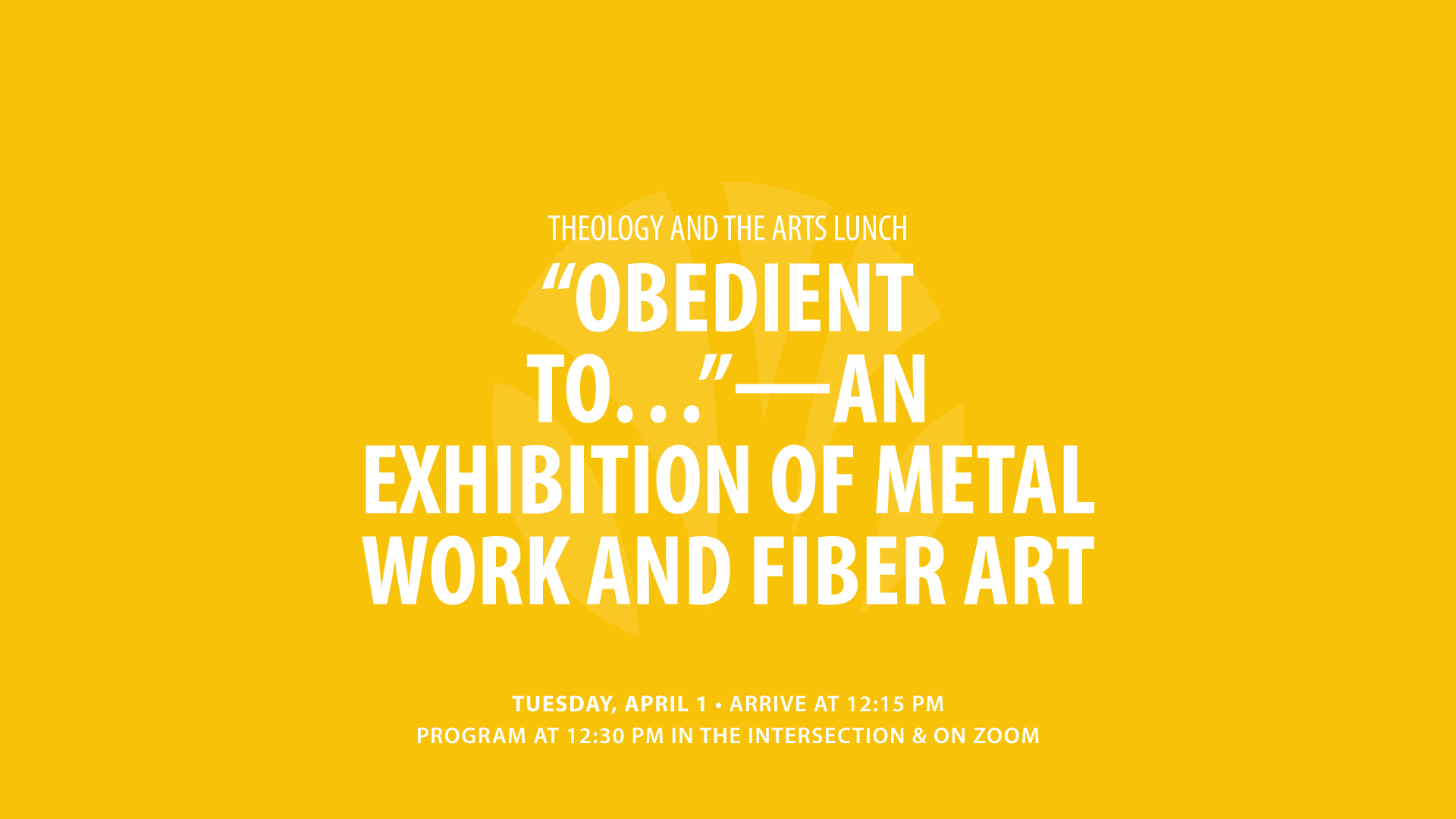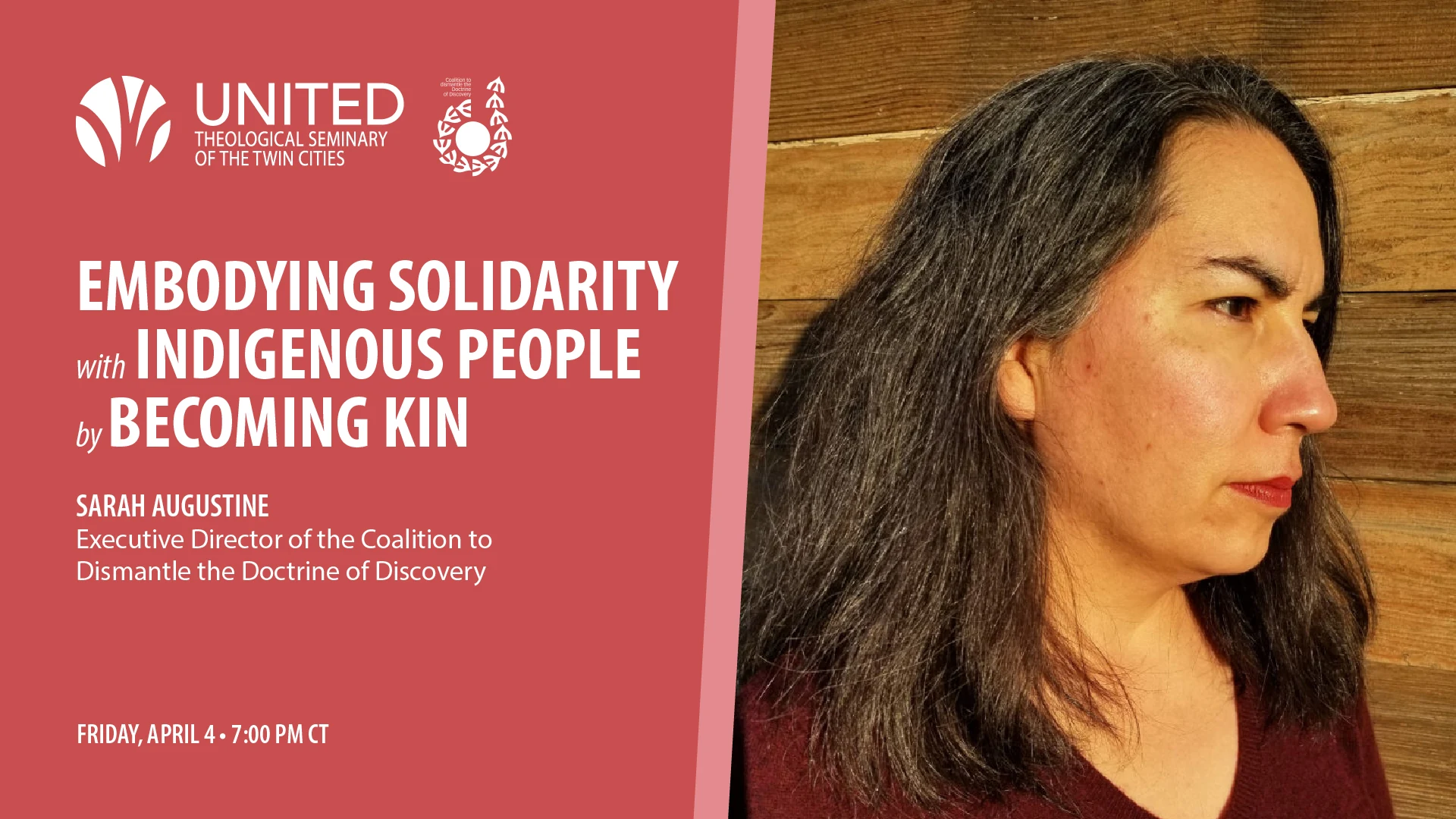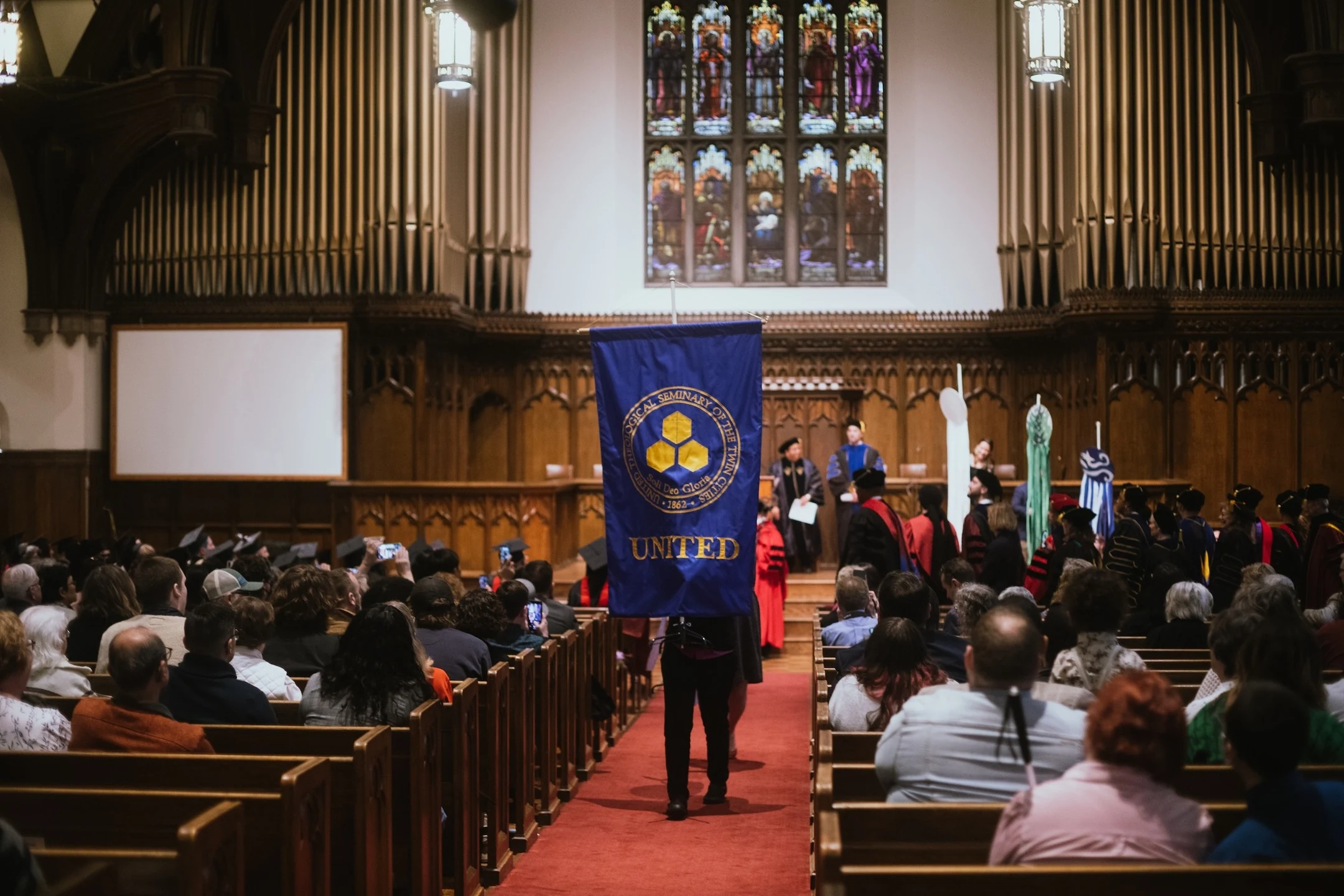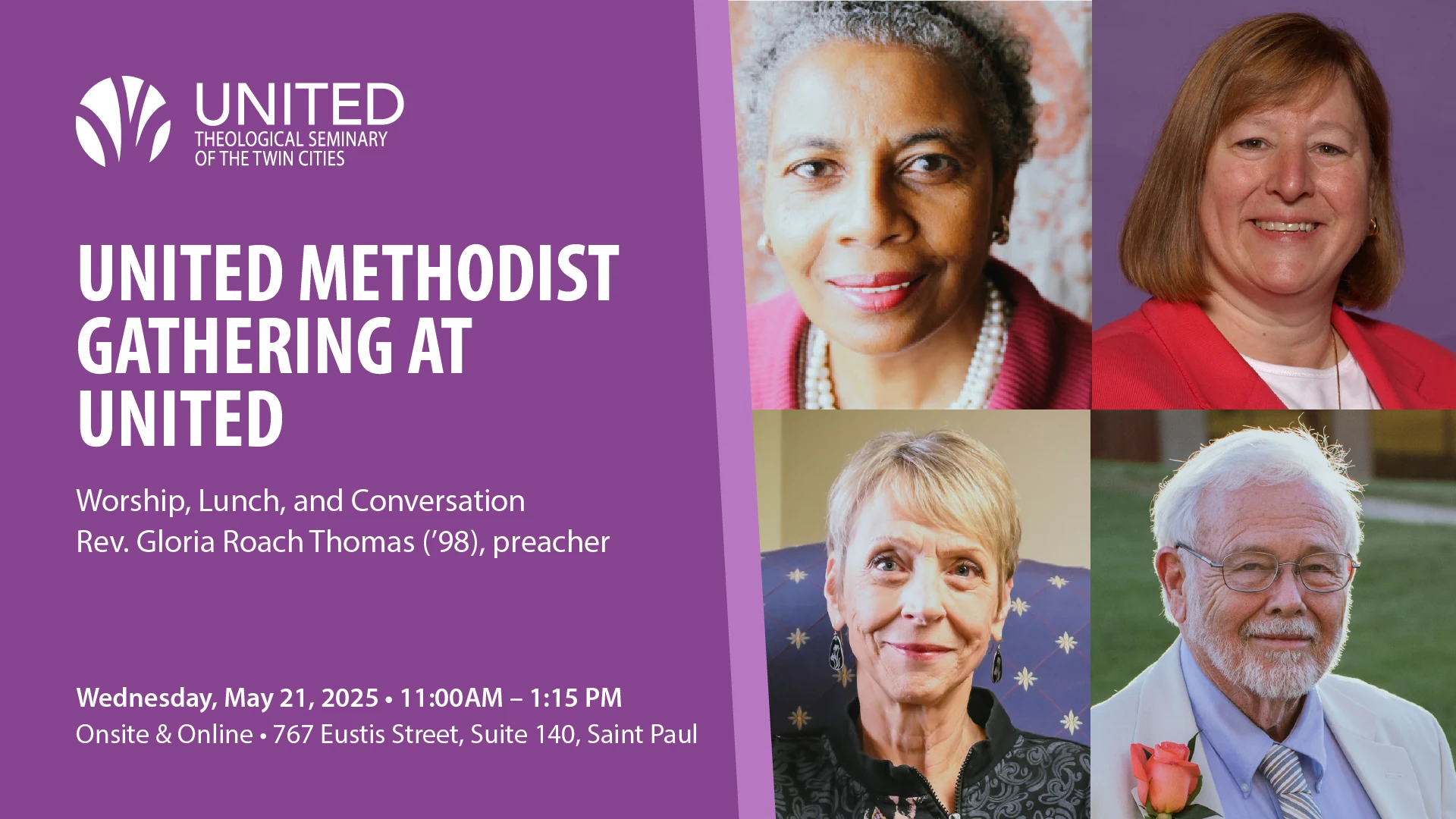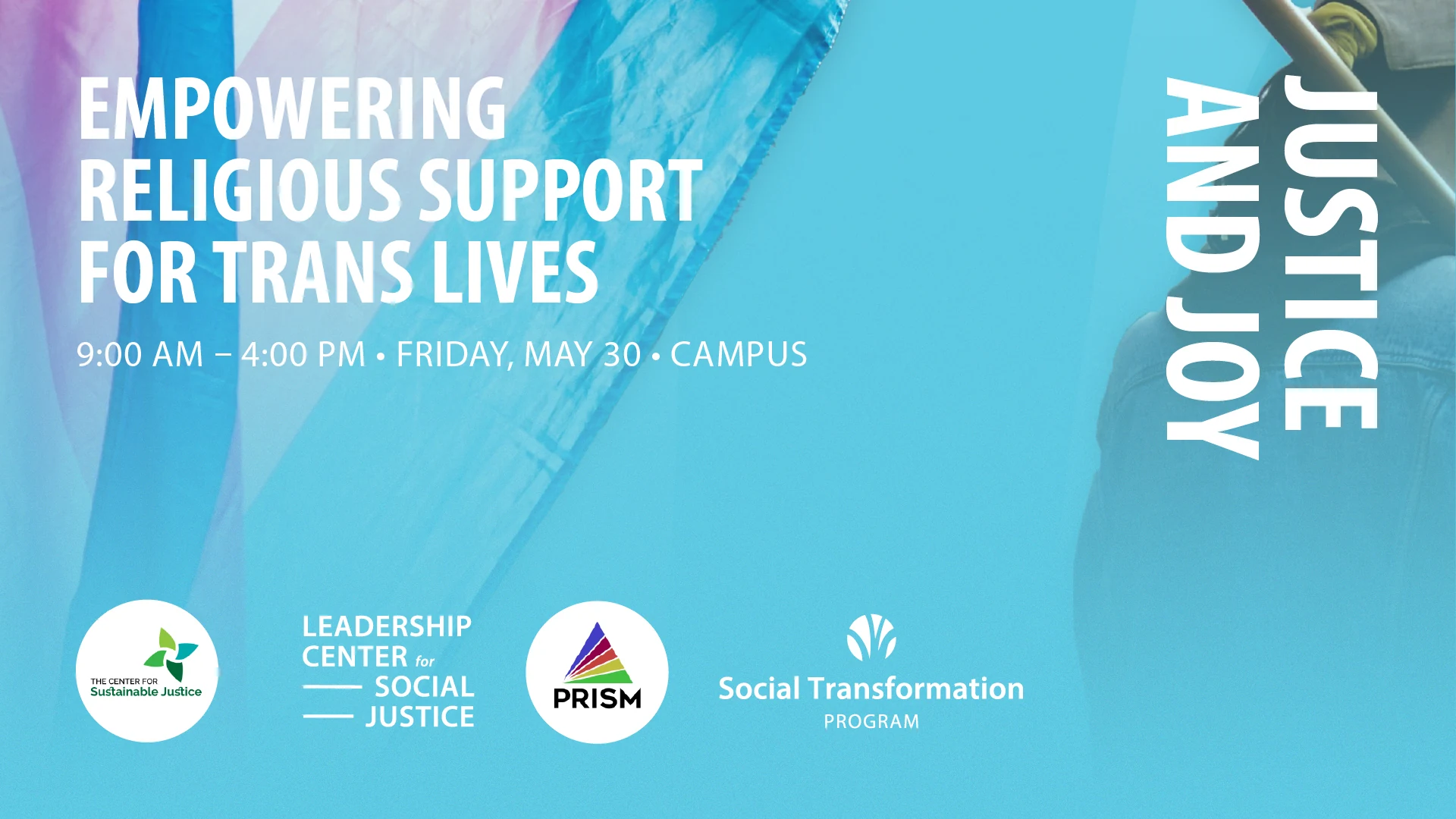The Quaker activists Staughton and Alice Lynd have long been reflecting on the practice of accompaniment in social movements and in their own lives. In memory of Staughton (1929–2022) and in collaboration with Alice, his lifelong companion and co-conspirator, the Leadership Center for Social Justice is excited to feature a series of conversations exploring the various dimensions of accompaniment and the possibilities it holds today for the work of social justice.
In his pastoral letters before his assassination in 1980, Óscar Romero, Archbishop of El Salvador, described the “kingdom of heaven” as a reality that comes not only after death but as something already inaugurated in history. In light of this, Archbishop Romero urged the church to oppose the structural sin of capitalism by accompanying the poor in their struggle for justice and liberation. The ministerial task of accompaniment took root in the formation of base communities across Latin America and represented a distinctive form of ministry for social justice that began with the work of listening to the struggles and hopes of ordinary people, and acting together, concretely, in the pursuit of another world.
In contrast to top-down forms of organizing, such an approach to ministry echoes the strategies of grassroots social movements that have emerged from “the bottom up” in other times and places. It permeated the theory and practice of Ella Baker, the Freedom Schools of the Student Nonviolent Coordinating Committee (SNCC) in the 1960s, the ministries of Rosemarie Freeney and Vincent Harding, and the practice of the late medical doctor, Paul Farmer. Today, we witness multiple forms of accompaniment throughout the world, in the work of communities providing sanctuary for migrants, in neighborhoods that organize for mutual aid, and in movements of solidarity that defend the earth and the flourishing of life for all.
For even more background, view our video from Symposium Week, “Organizing in the Spirit of Accompaniment: Lessons from Ella Baker to the Zapatistas,” below.
